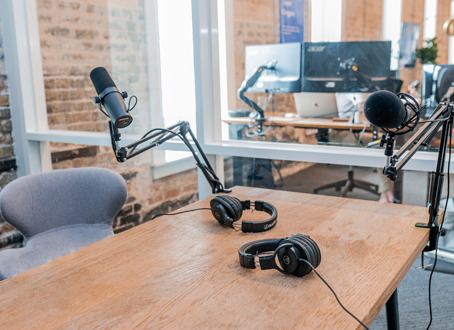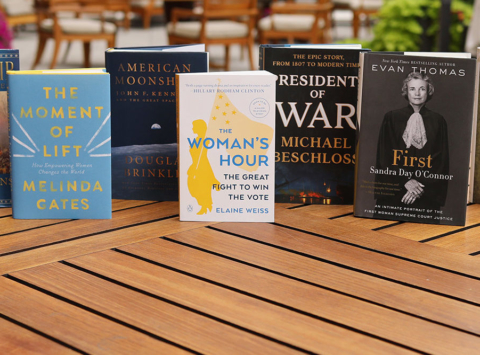“So, what do we do next?” According to reports, that is the response Bill Gates offered upon learning that the Gates Foundation‘s $700 million polio effort had fallen short of stopping the disease from spreading throughout Africa. Indeed, instead of putting a once-and-for-all stop to the disease, an outbreak had struck and was spreading through some of the very countries targeted for eradication. At the moment I read his response, I felt his pain. Imagine putting up such a significant sum from the goodness of your heart, committing your time, the talent of people you admire and respect and putting yourself out there in a really big way to meet a really big challenge and then … learning it didn’t exactly work the way you’d planned for and the way you passionately hoped it would.
When I say I get this, I really get this. On a dramatically smaller scale, at the Case Foundation we’ve had to face our own hard moments when reality has set in and you realize that the big opportunity you were chasing is looking more like a really big challenge that is hard to overcome. Things don’t materialize as envisioned, and you fall short of your mark. It’s easy to feel discouraged or even embarrassed. You can’t help but worry about what people will think, or the price you might pay in the court of public opinion.
We experienced this recently, as we had to re-think our involvement in the PlayPumps initiative, which brings clean drinking water to rural African villages. When we were first introduced to the technology, we believed both the technology and the business model for its deployment had enormous potential and jumped in with both feet to help create PlayPumps International-U.S. as a US-based fundraising and marketing organization to support the initiative. As we’ve noted in the past, we’re proud of the successes the initiative has had – PlayPumps are now bringing play opportunities and improved access to safe water in hundreds of communities and schools in Africa. In addition, these efforts have helped spark a number of new play-related technologies now being offered by various organizations and the initiative has highlighted the important role that social entrepreneurship can play in global development. However, we also acknowledge that the organization has fallen short of the aggressive goals that were developed at the outset, and all involved have learned many lessons.
As I noted last fall, we learned that doing work on the ground in Africa is hard and humbling work, even more so than anticipated. We learned that PlayPumps perform best in certain community settings, such as at large primary schools, but they are not necessarily the right solution for other communities. And more broadly, we learned that however creative PlayPumps might be, they really are just one element in a larger portfolio of possible solutions that can be tailored to meet the safe water needs of specific rural communities. In addition, while there have been successes in implementing the PlayPumps technology, and we believe in the entrepreneurial approach of the PlayPumps model, a combination of factors made execution of the original model we envisioned when creating PlayPumps International-U.S. a significant challenge.
Of course, there really is only one appropriate response when things aren’t humming along as planned, and it is the same response Bill Gates offered, “So, what do we do next?” Because just like in business ventures, personal undertakings and public sector initiatives, things often go wrong. The unexpected happens. Reality doesn’t always play out like the business plan calls for. Look at any great business today and chances are their road to success was fraught with potholes – low moments that required fresh, new thinking and important course corrections. As a nation, I think we’ve learned that progress comes through trial and error, and much of what we enjoy today is because somebody somewhere was willing to blaze new ground.
In the case of PlayPumps, there were essentially three options. One was to stay the course, ignore the emerging realities, and stubbornly continue on a path that the growing evidence was suggesting was unwise. A second would be to pull the plug on the effort, and conclude that the time and capital was better invested elsewhere. And the third was to take a step back and regroup, and undertake efforts to go forward in a new and more effective way. For PlayPumps International-U.S., the third path was the right one. The belief that clean water was one of the great issues of our time hadn’t changed – but there were likely better ways to advance the initiative. In May 2009, the board of PlayPumps International-U.S. brought in a new CEO to identify a new path forward. Under his leadership, in October of last year, the organization announced a grant of funds and technology to Water For People, which now offers PlayPumps as part of a larger portfolio of solutions from which rural African communities can choose. At the same time, we announced an investment by the Case Foundation in Water For People to help the organization accelerate and expand its efforts in Africa. For nearly 20 years, Water For People has pioneered innovative approaches to safe water supply, empowering communities and utilizing local entrepreneurs for sustainable operations and maintenance, and we truly believe that their approach represents a step forward for the PlayPumps technology.
It sometimes feels like philanthropic efforts are held to a different standard than in the private or public sectors. All too often there is less tolerance for mistakes, which leads many organizations to become risk-adverse. And when mistakes are made, the tendency is to sweep them under the carpet – thus depriving the sector of important lessons learned. But in reality, the very nature of innovation requires that we try new things and take risks. Sometimes they will work, other times they won’t – but in all cases, we should learn from our experiences and strive to do even better in the future. Of course we would have liked PlayPumps to have achieved the reach and impact to date that we originally envisioned – it’s much more fun to talk about successes than disappointments. The bottom line is that hundreds of African communities now have greater access to clean water and the revised efforts working with Water for People will further improve its availability. Together with other sector efforts and replication of the concept, we do believe African communities will be better served and the interventions more sustainable because of the important course corrections we’ve put in place. Might we have to revisit the strategy again and adapt along the way? Maybe. Turns out innovating is hard work anywhere and anytime. In the developing world even more so. But if the philanthropic sector is transparent about mistakes and lessons along the way, and adapts as the situation calls for, hopefully we’ll all end up a little wiser and a little closer to solutions that can more effectively address the daunting challenges of our day.





